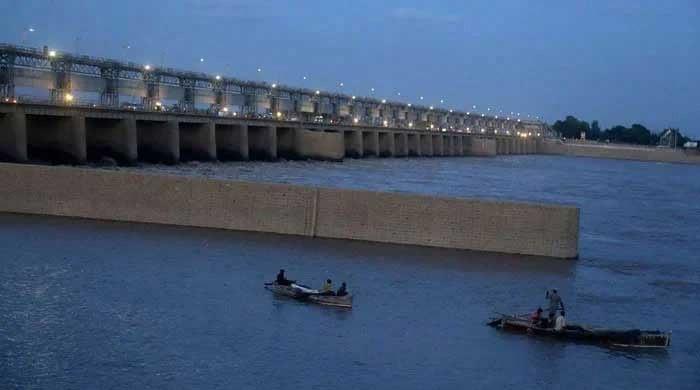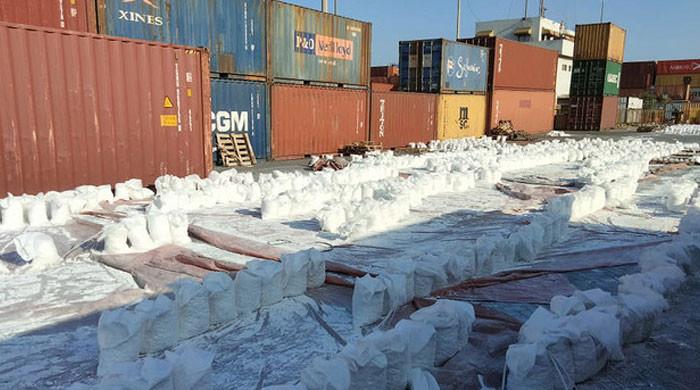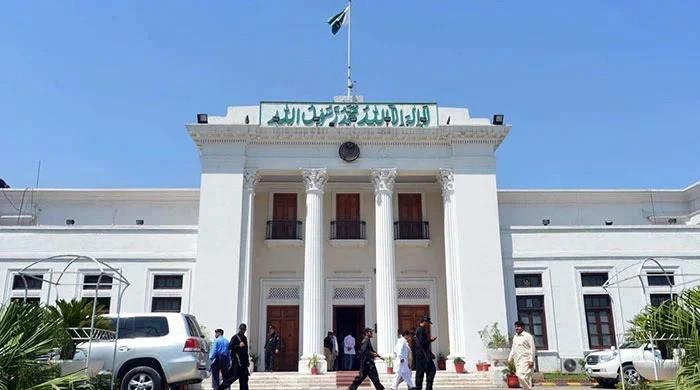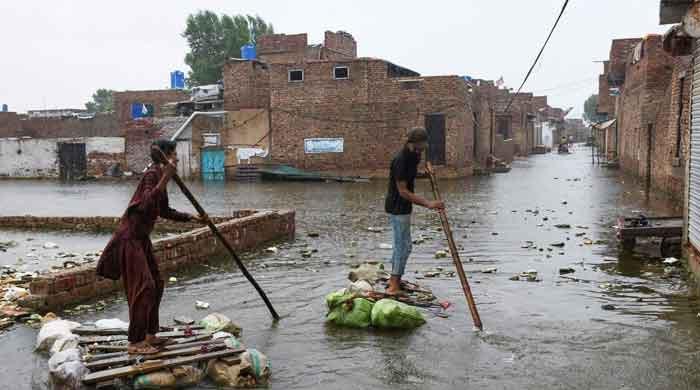What economic direction will the new budget set?
Reluctance to increase utility tariffs [...] state-owned enterprises would have favourable political impact but adverse economic consequences
June 10, 2022

The annual budget is not only a statement of revenues, expenditures, fiscal deficit and government borrowings but also a powerful tool for efficient resource allocation and utilisation, equitable distribution of incomes and a signal to the private sector about the economy’s direction.
The budget’s crucial element includes the speeches delivered by the federal and provincial finance ministers, which set the underlying policy framework.
In present uncertain times where the tenure of the present government is limited, external economic environment is pernicious, political polarisation is at peak and international financial markets are not looking at Pakistan favourably, the importance of this year’s budget assumes critical importance. It would provide signals to the international financial community (institutions, credit rating agencies, bond markets and foreign investors), trading partners, domestic investors and businesses and market players that Pakistan’s economic management is on the right track. Market confidence has to be restored through policies outlined in the budget.
The first and foremost task is to bring to a closure the agreement with the International Monetary Fund (IMF) in the next couple of months. This would not only release funds from the World Bank, Asian Development Bank (ADB), Islamic Development Bank (IsDB), Saudis, Chinese, etc. and ease the pressure on exchange rate but also remove the uncertainty about meeting the huge external finance requirements. Rating agencies, Fund managers would get reassured about the financial discipline that would be brought to bear. Market-determined exchange rate, moving in both directions, should remain in place. The State Bank of Pakistan should intervene only to contain volatility but not to defend a predetermined exchange rate target. To meet the IMF Board's prior conditions, the petroleum and diesel prices should be passed on to the consumers as across the board subsidies do not conserve the use and would widen the fiscal deficit, resulting in extra borrowing and growing indebtedness. Subsidies if any for a transitory or limited period should be channelled through the Benazir Income Support Programme (BISP).
Second, the ongoing efforts for the automation, computerisation, digitisation of FBR, integrating third party data bases with FBR data bases, using data analytics should be intensified to broaden the tax net and minimise the interaction between taxpayers and tax collectors. Taxes on laptops, computers, IT products and devices, telecom services should be reduced, so that the benefits of digital economy are widely diffused. Provincial taxes, including GST on service, contribute only 1 percent of GDP to the total tax pool. Revision of rates and better recovery of agriculture income tax, abiana and revaluation of property tax and cadastral surveys can easily double the revenue of the provincial and local governments.
Third, subsidies and conditional cash transfers to the poor should continue to be targeted through the BISP. This is the finest example of cross-party consensus which had the positive effect of reaching out assistance to the deserving poor segments of the population. The National Socio Economic Registry (NSER) has been updated and should be used for targeted subsidies for electricity, fertilisers, food, etc.
Fourth, as a result of currency adjustment, export financing, regionally competitive energy pricing, exports are growing at a rate of 25 percent this year. These incentives should not be altered or disturbed as the pricing structure quoted by our exporters is based on these calculations. It is only through consistently higher export earnings that we would be able to contain our trade imbalances.
Fifth, ongoing PSDP and ADP projects, including those under Public Private Partnerships, should be given the requisite allocations so that they are completed on schedule without any cost overruns and the benefits start accruing to the economy. Particular attention should be given to the Agriculture Transformation Plan in coordination with the provinces.
Sixth, a comprehensive report identifying 85 commercial state-owned enterprises (SOEs) for retention, restructuring, liquidation, privatisation of assets, capital market placements, corporatisation, management contracts with the private sector has been approved by the cabinet and needs expeditious implementation, particularly those for the PIA, Steel Mills, Railways, NHA, five DISCOs, which account for 89 percent of the cumulative loses of the SOEs.
Seventh, energy sector is causing a lot of harm to the economy. Circular Debt Restructuring Plan for power sector should focus on unfunded subsidies, agriculture tubewells, T&D losses, recoveries, renegotiated deals with the IPPs and transfer of management of five loss-making distribution companies (DISCOs) to private management. Indigenous fuels such as hydro, Thar coal, solar, wind, nuclear should be given higher priority in the merit order. Low-efficiency plants should be shut down. Two private sector RLNG plants at Port Qasim should be commissioned expeditiously as they do not carry any guaranteed off-take from the government. The weighted Average Cost of Gas Bill would make the pricing of gas more realistic by removing distortions and discrimination under the present system. Electricity Fuel Adjustment should be done on time by National Electric Power Regulatory Authority (NEPRA) without any intervention by the Ministry of Energy. Competitive Trading Bilateral Contracts Mechanism (CTBCM) is stuck because of the disagreements between the regulator and the ministry on the quantum of wheeling charges. The resolution of this problem would introduce competition in energy market and help the consumers in realistic pricing and ease the fiscal burden on the government.
Eighth, Pakistan Regulatory Modernisation Initiative (PMRI) and National Single Window (NSW) have reached an advanced stage in their ultimate goal of single portals which would make a huge difference to the private businesses and international trade in term of time, hassle, paper chase, illicit payments and costs. These initiatives would cut down unnecessary rules and regulations, NOCs and permits, etc
Finally, the present process of merit-based open competitive selection of CEOs and MDs of public sector corporations and institutions should remain in place. Highly qualified and experienced persons of integrity would build up the capacity of institutions of economic governance and overcome the implementation constraint that has been the bane of Pakistani economy.
It is clear that reluctance to increase utility tariffs or to pass on the increase in world prices of petroleum products to consumers or to right size the state-owned enterprises would have favourable political impact but adverse economic consequences. These policies are by no means going to endear the parties in power with the public at large in the immediate future. Therefore, political leadership at the federal and provincial governments has to lend full support to the finance managers in getting through this arduous and difficult process for restoring economic stability.
In doing so, they need to realise that their political survival is very much dependent on revival of economic growth and job creation, macroeconomic stabilisation, including containing inflation and redistribution to the poor, and these results can only be achieved if politically unpopular and tough decisions are taken today and not postponed or dilly-dallied.
For Geo.tv's latest news, updates and analysis of the Federal Budget 2022-23, visit: https://geo.tv/trending/budget-2022-23











